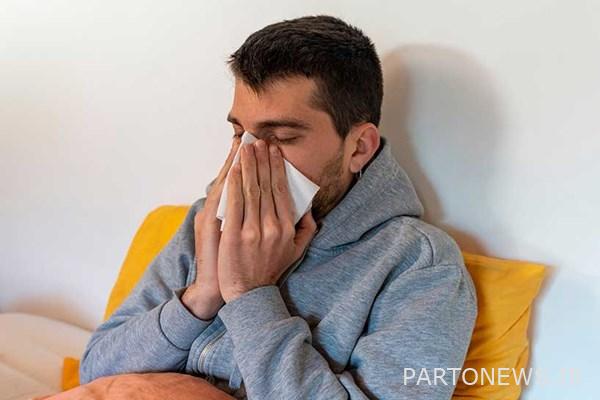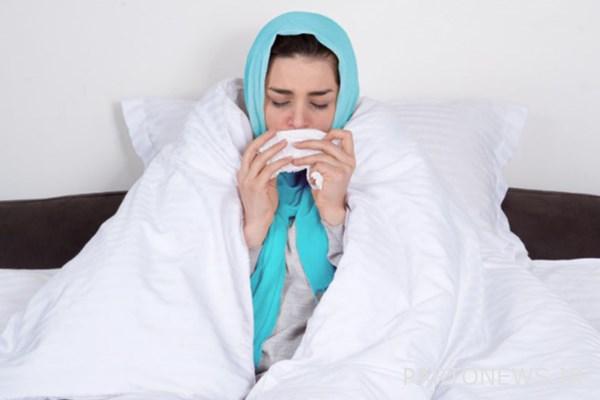Common autumn diseases and how to avoid them

Life group: Autumn, which passes from its first month, shows more signs of winter. Although we may still experience the heat of the sun around noon, the life of this autumn sun will gradually decrease.
As the air cools as our body adapts to the new season, we may still fall ill in the midst of this adaptation by neglecting to cover and prevent disease.
To boost the immune system and get rid of the disease sooner, even if we get it, it is better to know the common diseases of autumn and also their cause and treatment.
Colds and flu
The most common illness in the fall is the common cold and its acute form, the flu. Even these days, Corona is lurking; Recognizing the symptoms of these two diseases and separating them from the corona, of course, with the advice of a doctor seems necessary.
Weakened immune system is the most common cause of colds and flu. Humidity and air pressure, along with sudden changes in temperature, rain and strong winds, are among the causes of weakening of the immune system when we do not observe the cover and hygienic conditions of autumn.
If our cold and flu become a viral infection, we must see a doctor. Washing the face and nose with cold water, increasing the consumption of fruits and juices, and wearing warm clothes are very effective in preventing these two diseases.
Allergies and asthma
It is autumn and the season of allergies or the same diseases of the respiratory system. Asthma occurs in both dry and allergic models. Dry asthma manifests itself with shortness of breath and wheezing, and allergic asthma with exposure to allergens such as pollen or dust, which can lead to coughing or even runny eyes and runny nose.
In either case, it is best to see a doctor to relieve the pain and prevent the condition from getting worse. Allergic asthma can sometimes be largely cured by taking a pill.

Gastrointestinal ulcers
Gastric or peptic ulcer: It is the most common disease in autumn. Wrong eating habits, smoking, stress and genetic factors are the main causes of gastrointestinal ulcers.
If you have a loss of appetite, stomach pain in the abdomen, or vomiting as a result, you may have a peptic ulcer. These pains usually occur after eating and if you are hungry. In the fall, if we do not change our eating habits, do not go for foods and foods suitable for the autumn nature, and use a lot of greenhouse and inorganic foods that are not related to this season, we increase the risk of gastrointestinal ulcers in our body.
Heart failure
It’s unfortunate, but climate and seasonal changes for those with a weak body make them even more prone to heart disease.
Because the body tries to adapt to seasonal changes, the result is increased function of the respiratory and cardiac systems. Sudden intensification of this function, in addition to previous areas, affects the heart system. The respiratory system may also be involved.
If you feel pain or discomfort in your heart or respiratory system, do not delay the follow-up of this pain through medical action for even one day.

Rheumatism
Cold sensitivity is one of the causes of rheumatism. People with this condition may experience a severe and annoying form in the fall. Consumption of calcium and B vitamins helps to repair and strengthen cartilage and nerve roots in the joints. To relieve rheumatism, anti-inflammatory ointments are also prescribed by a doctor. A person with rheumatism should keep their bones warm and avoid walking and excessive exposure to rainy or cold, dry weather.
End of message /
You can edit this post
Suggest this for the front page
.

